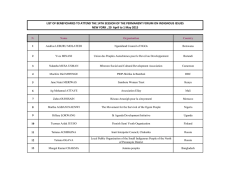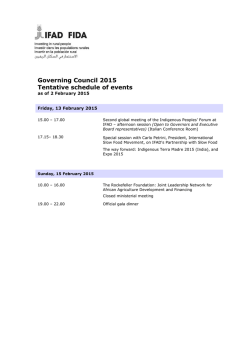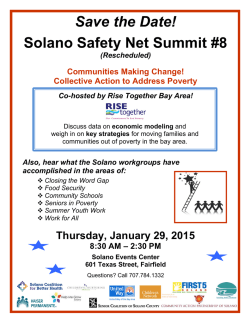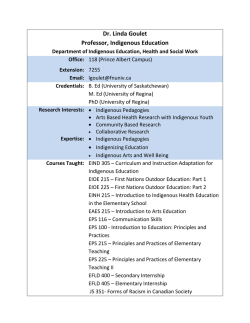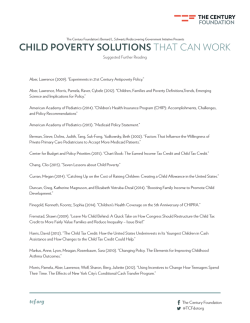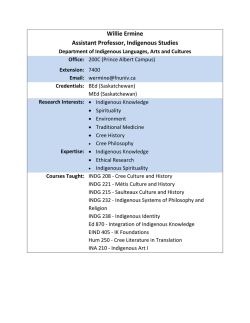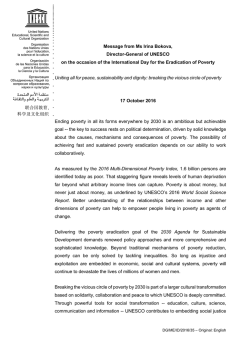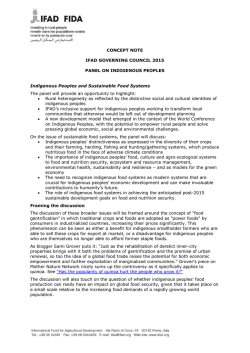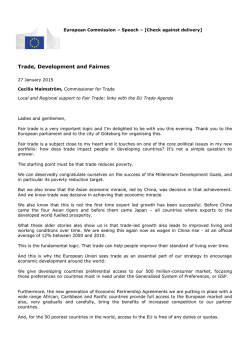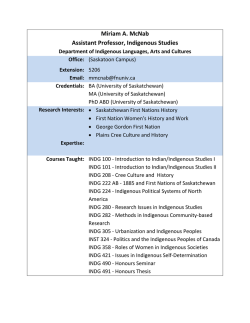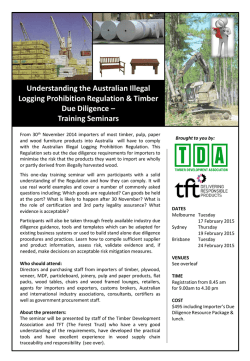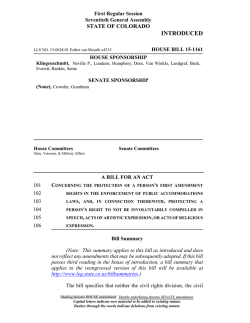
download - Asian Development Bank
INITIAL POVERTY AND SOCIAL ANALYSIS Country: Pakistan Project Title: Engro Fast-Track Liquefied Natural Gas Regasification Project Lending/Financing Modality: Project Loan Department/ Division: Private Sector Operations Department/ Infrastructure Finance Division 1 I. A. POVERTY IMPACT AND SOCIAL DIMENSIONS Links to the National Poverty Reduction Strategy and Country Partnership Strategy The proposed ADB assistance aims to take part in addressing Pakistan’s energy sector problem. Power brown-outs and occasional blackouts, predominantly on account of fuel unavailability; both for gas and fuel oil —has resulted in shutdowns, massive layoffs and unrest. To achieve energy security, this project was identified by the Ministry of Petroleum and Natural Resources (MPNR), focusing on the utilization of existing energy handling infrastructure in the country. Successful development of the project will play a part in satisfying the growing domestic demand for hydrocarbons—helping to reduce the unmet energy demand in Pakistan. It is also anticipated that the project will contribute to national energy security priorities and significantly affect both regional and economic growth through local investments and taxes. B. Targeting Classification: General Intervention Individual or Household (TI-H) Geographic (TI-G) Non-Income MDGs (TI-M1, M2, etc.) The project will contribute to economic growth, poverty reduction, job creation, and improvement of power supply in Pakistan. Construction will directly employ the local community, and will create income opportunities in providing support services and provision of food and agricultural products to construction workers. C. Poverty and Social Analysis 1. Key issues and potential beneficiaries. Pakistan has made considerable progress in reducing absolute poverty and improving shared prosperity over the last two decades. From 1991 to 2011, the proportion of people with an income of less than $1.25 a day was more than halved, led by rural areas. The percentage of the population below the national poverty rate has fallen from 34.7% in FY2002 to an estimated 13.6% in FY2011. However, progress slowed in FY2009–FY2011 as a result of two massive floods hitting the country, conflict, and the global economic a slowdown. 2. Impact channels and expected systemic changes The project will generate employment opportunities, and Engro Elengy Terminal Private Limited (EETPL) will prioritize local labor as part of its commitment to local residents. Locals will also be employed during mangrove reforestation and re-vegetation activities. 3. Focus of (and resources allocated in) the PPTA or due diligence. ADB Team will conduct a due diligence focusing on (a) the capacity of the project sponsor to implement the project and its performance in projects being managed particularly with regard to environment, land acquisition and involuntary resettlement, indigenous peoples/ethnic minority issues, (b) views of civil society organizations on the proposed project and other social aspects of the project like gender, labor practices, stakeholder engagement, etc. 4. Specific analysis for policy-based lending. Not applicable II. GENDER AND DEVELOPMENT 1. What are the key gender issues in the sector/subsector that are likely to be relevant to this project or program? Common problems in the area affecting women are limited employment opportunities and limited facilities affecting the access of the local community including women to basic services. 2. Does the proposed project or program have the potential to make a contribution to the promotion of gender equity and/or empowerment of women by providing women’s access to and use of opportunities, services, resources, assets, and participation in decision making? Yes No Please explain. The nature of the project limits the proposed project in coming up with measures to promote gender equality and empowerment. 3. Could the proposed project have an adverse impact on women and/or girls or widen gender inequality? Yes No Please explain 4. Indicate the intended gender mainstreaming category: NGE (no gender elements) 2 III. PARTICIPATION AND EMPOWERMENT 1. Who are the main stakeholders of the project, including beneficiaries and negatively affected people? Identify how they will participate in the project design. The project stakeholders include relevant government agencies, civil society organizations and communities living within the project impact area. The ADB Team will meet with some of these stakeholders during due diligence. 2. How can the project contribute (in a systemic way) to engaging and empowering stakeholders and beneficiaries, particularly, the poor, vulnerable and excluded groups? What issues in the project design require participation of the poor and excluded? The project sponsor will continuously engage with communities and civil society organizations during the project implementation. 3. What are the key, active, and relevant civil society organizations in the project area? What is the level of civil society organization participation in the project design? Information generation and sharing Consultation Collaboration Partnership 4. Are there issues during project design for which participation of the poor and excluded is important? What are they and how shall they be addressed? Yes No A. Involuntary Resettlement Category IV. SOCIAL SAFEGUARDS A B C FI 1. Does the project have the potential to involve involuntary land acquisition resulting in physical and economic displacement? Yes No No impact. The project will traverse government land, and no individual or household will be physically or economically impacted. 2. What action plan is required to address involuntary resettlement as part of the PPTA or due diligence process? No action or measure B. Indigenous Peoples Category A B C FI 1. Does the proposed project have the potential to directly or indirectly affect the dignity, human rights, livelihood systems, or culture of indigenous peoples? Yes No 2. Does it affect the territories or natural and cultural resources indigenous peoples own, use, occupy, or claim, as their ancestral domain? Yes No Indigenous Peoples will be affected by the project. 3. Will the project require broad community support of affected indigenous communities? Yes No 4. What action plan is required to address risks to indigenous peoples as part of the PPTA or due diligence process? No action or measure V. OTHER SOCIAL ISSUES AND RISKS 1. What other social issues and risks should be considered in the project design? Creating decent jobs and employment Adhering to core labor standards Labor retrenchment Spread of communicable diseases, including HIV/AIDS Increase in human trafficking Affordability Increase in unplanned migration Increase in vulnerability to natural disasters Creating political instability Creating internal social conflicts Others, please specify __________________ 2. How are these additional social issues and risks going to be addressed in the project design? During construction, local community members will be engaged to provide skilled and unskilled labor. EETPL will ensure that contractors and subcontractors comply with the national labor law, and adopt measures to comply with internationally recognized core labor standards. VI. PPTA OR DUE DILIGENCE RESOURCE REQUIREMENT 1. Do the terms of reference for the PPTA (or other due diligence) contain key information needed to be gathered during PPTA or due diligence process to better analyze (i) poverty and social impact; (ii) gender impact, (iii) participation dimensions; (iv) social safeguards; and (vi) other social risks. Are the relevant specialists identified? Yes No 3. What resources (e.g., consultants, survey budget, and workshop) are allocated for conducting poverty, social and/or gender analysis, and participation plan during the PPTA or due diligence? The ADB Team will conduct due diligence and meetings with clients that will cover social safeguards, labor, gender, and other social aspects of the project. a International Bank for Reconstruction and Development and International Development Association and International Finance Corporation and Multilateral Investment Guarantee Agency. 2014. Country Partnership Strategy for the Islamic Republic of Pakistan for the Period FY2015-19. Washington D.C.
© Copyright 2026
